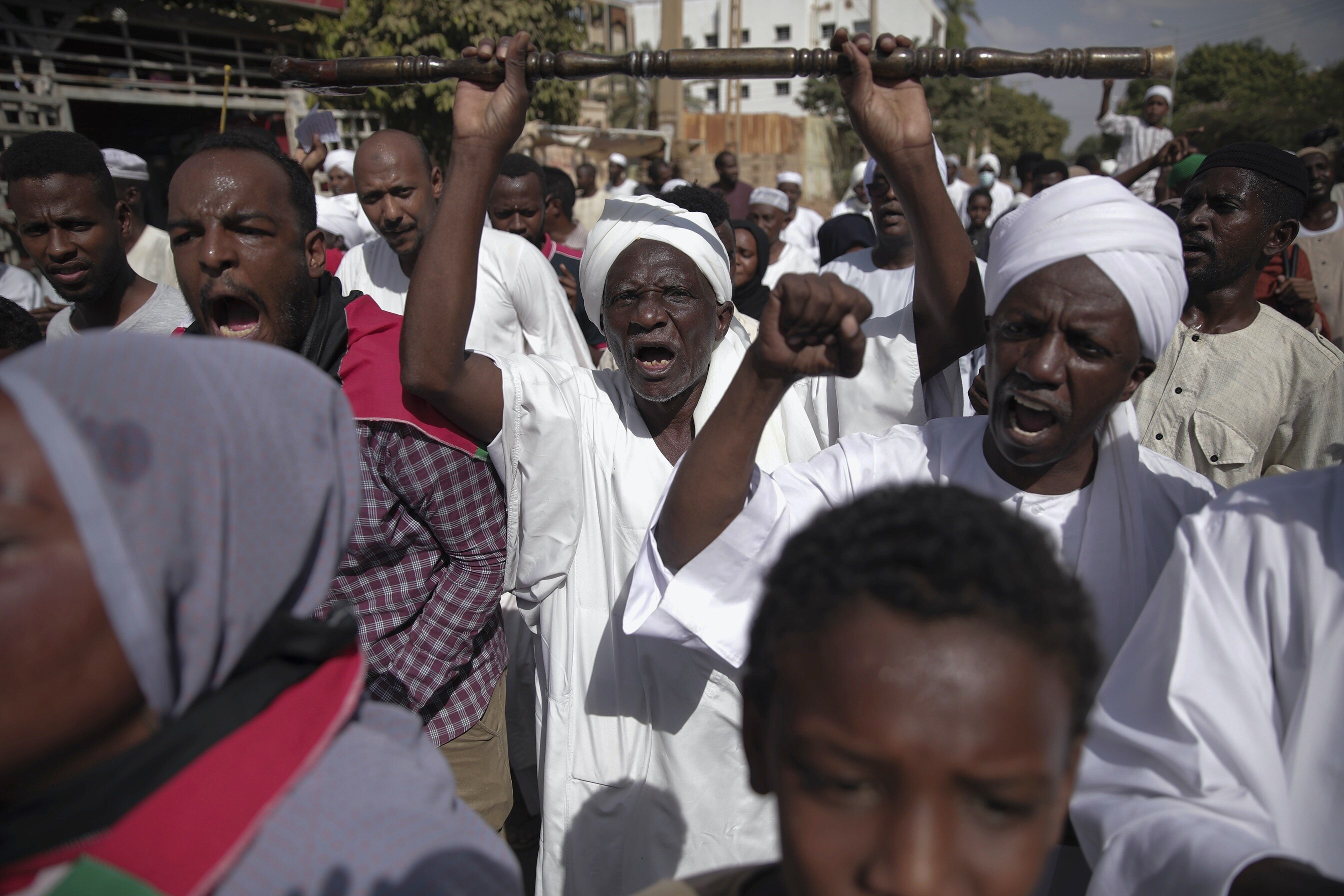Sudan braces for protests against bloody coup
Read More


Despite the bloodshed, the protesters remain defiant. Organisers on Saturday hope to stage a "million-strong" march against the military's power grab, similar to mass protests that led to the toppling of autocrat Omar al-Bashir in 2019.
"We will not be ruled by the military. That is the message we will convey" at the protests, said Sudanese rights activist Tahani Abbas.
"The military forces are bloody and unjust and we are anticipating what is about to happen on the streets," Abbas said. "But we are no longer afraid."
Several pro-democracy activists have been arrested following the takeover led by General Abdel Fattah al-Burhan, Sudan's de facto leader since the ouster of Bashir which came at the cost of more than 250 lives.
Warnings on violenceOn the eve of Saturday's rallies, a US official put the death toll at between 20 and 30, adding the protests would be a "real test" of the intentions of Sudan's military.
"We call on the security forces to refrain from any and all violence against protesters and to fully respect the citizens' right to demonstrate peacefully," the official in Washington said on condition of anonymity.
A similar call came from Britain's special envoy for Sudan and South Sudan, Robert Fairweather.
"The security services and their leaders will bear responsibility for any violence towards any protesters," he said on Twitter.
Phone lines were largely down by Saturday morning, as security forces deployed in large numbers and blocked bridges connecting the capital, Khartoum, with its sister cities.
They set up random checkpoints on main roads, randomly frisking passers-by and searching cars.
"We learned that the coup authority is planning to fabricate instances of destruction to justify its excessive violence," Sudan's information ministry, which backs a civilian government, said in a statement.
UN chief warns of 'an epidemic' of coups after military takeover in Sudan
Finance Minister Gibril Ibrahim, who leads an ex-rebel group aligned with the military, emphasised protesters' right to demonstrate but suggested they were the ones prone to violence.
"Destroying sidewalks, electricity poles, and damaging properties which were built by the people has nothing to do with peaceful expression," he said in a tweet, suggesting they were the ones prone to violence.
Days of unrest have rocked Khartoum and other cities.
Protesters, who barricaded roads with rocks, debris and burning tyres, have in some cases been met with tear gas, rubber-coated bullets, and live rounds.
Shops have largely been shuttered, and government employees have refused to work as part of a campaign of civil disobedience.
Sudan state TV showed a series of testimonies from military men alleging that protesters wounded them during clashes, as well as ordinary Sudanese hailing the army and criticising the civil disobedience campaign.
The same channel reported on Thursday that its head Luqman Ahmed, a veteran advocate of civilian rule, had been sacked.
Aid frozenSudan had been led since August 2019 by a civilian-military ruling council, alongside Prime Minister Abdalla Hamdok's government, as part of the now stalled transition to full civilian rule.
The transition was supposed to last three years and culminate in elections.
Hamdok was briefly detained, then released and placed under effective house arrest. Other civilian leaders and ministers are still being held.
"The Sudanese people are determined to... win back the gains of the December 2018 revolution" against Bashir, said Abdelgelil al-Basha from the capital's twin city of Omdurman.


Shops have largely been shuttered, and government employees have refused to work as part of a campaign of civil disobedience.
Burhan, a senior general under Bashir's three decades of iron-fisted rule, has insisted the military takeover "was not a coup" but only meant to "rectify the course of the Sudanese transition".
The move led the World Bank and the United States to freeze aid - a heavy blow to a country already mired in a dire economic crisis that began under Bashir.
US President Joe Biden described the coup as a "grave setback", while the African Union suspended Sudan's membership for the "unconstitutional" takeover.
On Friday, UN Secretary-General Antonio Guterres called on the military "to show restraint and not to create any more victims."
Monday's power grab was the latest coup in Sudan, one of the world's least developed countries which has enjoyed only rare democratic interludes since independence in 1956 and spent decades riven by civil war.
0 Response to "Sudan braces for protests against bloody coup"
Post a Comment